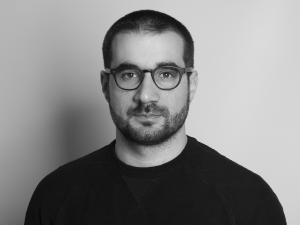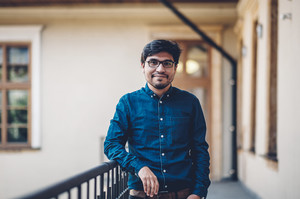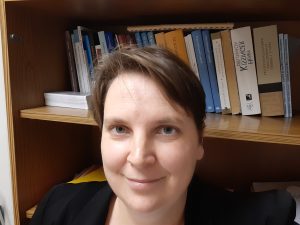 |
Paulo Nuno Vicente
Artificial Intelligence, algocracy and the problem of two cultures: challenges for a renewed role of the humanities This talk is about the social and cultural impact of Artificial Intelligence (A.I.) technologies. It departs from the critical recognition that we live in the age of social legitimation of algorithms as a mode of knowledge and source of authority, that this legitimation requires robust civic ownership, and that democratic knowledge-based societies require inclusive and accountable socio-technical systems. The immediate and future social and cultural impact of A.I. technologies is too significant for its analysis and discussion to be confined to a dialogue among scientists, engineers, and technologists. This impact is now specific and identifiable, cutting across individuals and organizations, and originating from global phenomena: on the one hand, the datafication of social life, understood as the codification of our attitudes, predispositions and actions in numerical representations, and inseparable from their storage in digital databases; on the other hand, the algorithmic proliferation, a phenomenon that we describe and analyze to situate the progressive complementarity and/or replacement of the attribute of individual and collegial human judgment by predictive decision processes of mathematical and computational nature in structural dimensions of civic life. We propose that an adequate and comprehensive understanding of what an algorithm is and what it does needs to go beyond its technical description as code. Are the Humanities prepared to deal with these challenges? Paulo Nuno Vicente is member of the Council of Europe’s intergovernmental project on Artificial Intelligence & Education and is the coordinator and co-founder of the iNOVA Media Lab, a research and development lab dedicated to the areas of immersive and interactive narrative, social impact of Artificial Intelligence, web platforms and social networks, innovation and digital transformation, information visualization and science communication. He coordinates the Masters in New Media and Web Practices and co-coordinates the PhD in Digital Media. He is an honored recipient of the prestigious German Marshall Fund of the United States Fellowship (2016) and Calouste Gulbenkian Prize – Knowledge (2019). |
 |
Toma Tasovac
Digital Humanities and the (Unsurprising?) Tenacity of the Print Mind The “typographic fixity” made possible by the printing presses at the end of the fifteenth century fully — and lastingly — transformed the human intellectual landscape: our methods of data collection, retrieval and storage, and our patterns of communication. At the end of the twentieth century, the fluidity of electronic textuality was hyped as potentially transformative and liberating, a chance to break free from the linearity of thought, yet to this day we are governed as much as ever by the notions of text as an atavistic relic of print culture: static objects with unrealized potential and wanna-be books on the imaginary shelves of digital libraries. In this talk, I will claim that, despite the ubiquity of electronic textuality and the methodological adventures of distant reading, we remain to a large extent prisoners of the print mind. This has implications for the way we conduct research, evaluate and teach Digital Humanities, the way we create and consume digital editions, the way we build and annotate linguistic corpora, the way we design interfaces, conceptualize metadata, implement annotation workflows etc. The question is: can we ‘do texts’ differently? And should we? Toma Tasovac is Director of the pan-European Digital Research Infrastructure for the Arts and Humanities (DARIAH-EU). With an academic background in Comparative Literature and degrees from Harvard, Princeton and Trinity College Dublin, Toma’s areas of scholarly expertise include historical lexicography and the development of language resources, data modeling, digital editions and research infrastructures. He is the co-creator of TEI Lex-0: a baseline encoding format for lexicographic data, which has received the 2020 Rahtz Prize for TEI Ingenuity from the TEI Consortium. He is the co-editor, together with Sally Chambers, of the forthcoming book *Digital Humanities: An Introduction for Librarians*. |
 |
Claudio Rodríguez
Building Strategies for teaching how to tame indeterminacy in media Our usual concepts of media include, to some degree, embedded assumptions about our perceptual capabilities. The process, however, of experiencing apparent cultural objects that are not grounded in our own expectations entails a disconnect from the meaning-making that the object tends to perform. Claudio Rodríguez is an assistant professor at Department of General Linguistics at Palacký University, Olomouc, Czech Republic. He got his PhD degree in semiotics in University of Tartu, in Estonia. He specializes in semiotics, cognitive and biosemiotics, epistemology and philosophy of science. |
 |
Melinda Szappanyos
Difficulties of digital education: Copyright in Europe Digital education got wings during the Covid19 pandemic. However, forced solutions have to be replaced by thought through, long-term strategies in the digital education world. Digital education sounds easy: uploading course materials, giving online lectures and preparing and assessing online exams. This presentation focuses on the first “easy” part: uploading course materials. The main questions examined: How does the European Union regulate copyright issues? What does national law say? Who owns our work if offered as official material for a course regularly taught by our institution? Melinda Szappanyos has an education background in law, history and pedagogy. Her field of expertise and research is international human rights, with special focus on the human right to water. Recently, she has been engaged in new research fields, such as the impact of artificial intelligence on the jurisprudence of the European Court of Human Rights, and the human rights implications of the judgements of the International Court of Justice. She is an Assistant Professor of the Department of Political Science and International Studies at the University of Pécs, Faculty of Humanities and Social Sciences. |